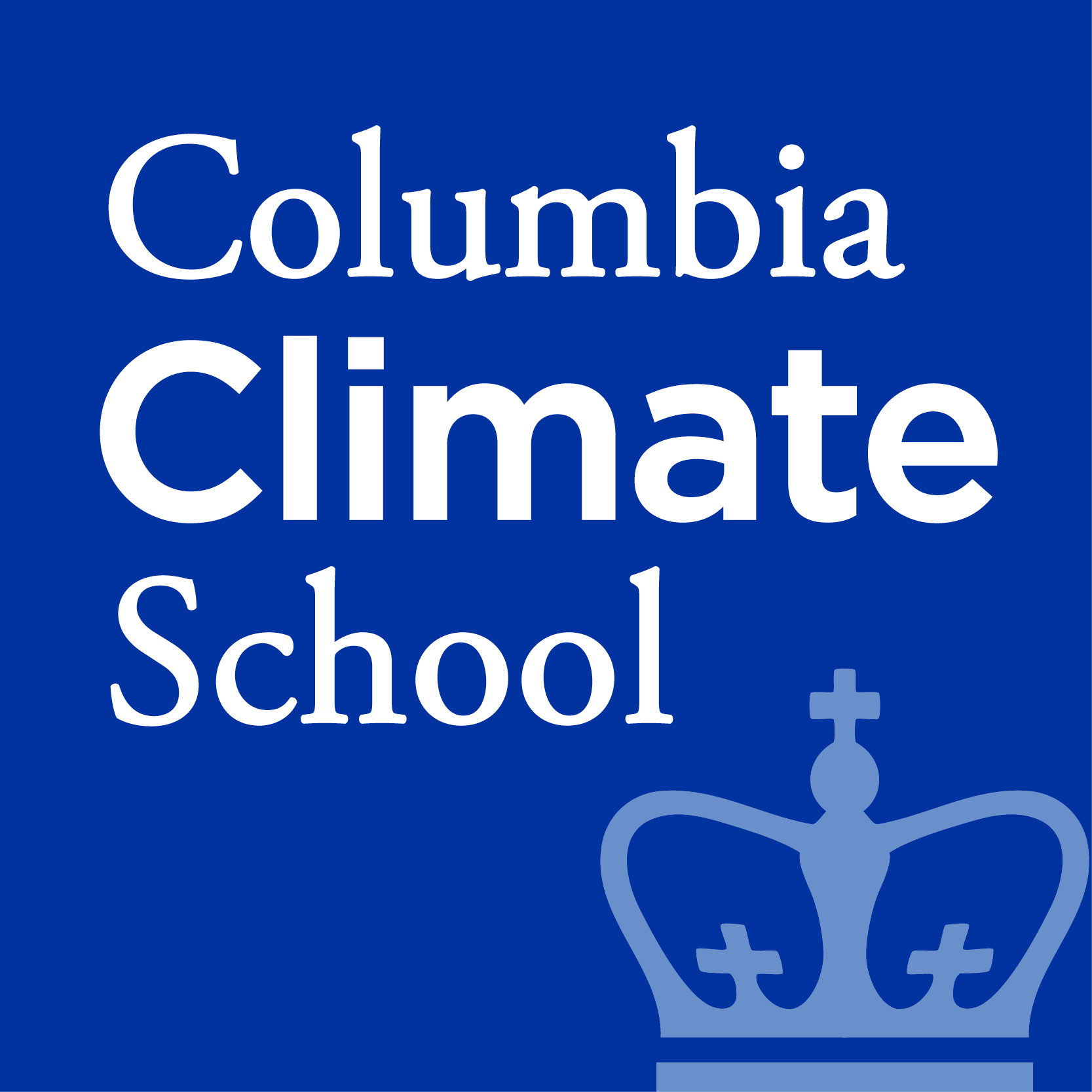Brand Materials
Please right click (PC) or control click (MAC) to download the logos and templates.
Primary Color
- Columbia Climate School Blue
- Pantone 286C
- RGB: 0, 51, 160
- HEX: #0033a0
- CMYK: 100, 75, 0, 0
Secondary Colors
- Columbia Blue
- Pantone 290C
- RGB: 185, 217, 235
- HEX: #b9d9eb
- CMYK:23, 0, 1, 0
- Pantone 284C
- RGB: 108, 172, 228
- HEX: #6cace4
- CMYK: 59, 17, 0, 0
- Pantone 285C
- RGB: 0, 114, 206
- HEX: #0072ce
- CMYK: 90, 48, 0, 0
- Pantone 280C
- RGB: 2, 33, 105
- HEX: #022169
- CMYK: 100, 85, 5, 22
Logos
Style Guides
Language Style Guide
The Earth Institute uses AP style for its communications, with a few exceptions. You can access the online guide through the Columbia Library. Just go to https://library.columbia.edu/ and enter “AP StyleBook” in the search field. The AP site will let you go through the guide by chapter or search at the top.
- Use mixed cap style for headlines. This means major words like nouns, verbs, etc. are capitalized; prepositions with four or more letters (“with,” “through,” etc.) are capitalized; and less significant words like “a” and “the” are lowercased.
- Do not use the acronym “EI.” Our full name is “the Earth Institute, Columbia University,” but this can often be shortened to “the Earth Institute” when the formal name has already been established. When the full name is used in a sentence, “Columbia University” should be followed by a comma. For example: “The Earth Institute, Columbia University, has over 30 centers and programs.” When the Earth Institute is used outside of a sentence, as in free-standing, the “t” needs to be capitalized. For example:
Speakers:
Jeffrey D. Sachs, The Earth Institute, Columbia University
Bill Gates, The Bill and Melinda Gates Foundation - Use only one space between sentences.
- In general, avoid the capitalization of people’s titles. Try to form sentences so that titles follow people’s names and are separated by commas. Example: Deirdra Q. Barnum, professor of engineering, gave the lecture.
- Named professorships need to be capitalized in any format. Example: Jeffrey D. Sachs, Quetelet Professor of Sustainable Development, also attended.
- In the few cases where a person’s title precedes that person’s name, it is capitalized, as long it is a proper title (as opposed to “writer” or “researcher”). Example: Secretary-General Ban Ki-moon visited Malawi.
- Do not use Dr., Mrs., Ms., Mr. or Rev. to refer to an individual. After initial identification, the individual’s last name is sufficient.
- In story titles, use single quote marks around quoted text. Anywhere else, use double quote marks for quoted text.
- Website is written as one word, and “web” is not capitalized. Commonly used Earth Institute web addresses like earth.columbia.edu, etc., do not need the “www.” (Make sure you always test an address in your browser to make sure it works without the www before writing it that way.) When possible, or when one does not seem like a simple web address, use accompanying text that indicates it is online like “Learn more online at earth.columbia.edu/education.” Try to ensure consistency of format within a document if multiple web addresses are used.
Boilerplate
The Earth Institute, Columbia University
The Earth Institute’s mission is to mobilize the sciences, education and public policy to achieve a sustainable Earth. Through interdisciplinary research among more than 500 scientists in diverse fields, the Institute is adding to the knowledge necessary for addressing the challenges of the 21st century and beyond. With over two dozen associated degree curricula and a vibrant fellowship program, the Earth Institute is educating new leaders to become professionals and scholars in the growing field of sustainable development. We work alongside governments, businesses, non-profit organizations and individuals to devise innovative strategies to protect the future of our planet.
earth.columbia.edu
Impacts/Practice Definition
- Working interactively with stakeholders to help them apply state-of-the-art scientific knowledge and methods to address real-world problems;
- Informed by basic and applied research, bringing advanced knowledge into the field where theories and hypotheses developed in the research and teaching environment of academic institutions can be tested, improved, evaluated, and scaled to meet stakeholder needs; and
- Direct engagement in practice helps guide further basic and/or applied research to better address emerging challenges in sustainable development.

